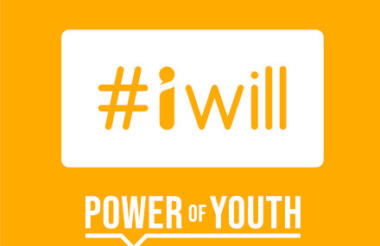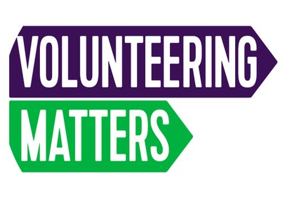I would like to break with tradition and invite you to celebrate with me as we roll down the shutters for good at Step Up To Serve, the small charity set up to coordinate the #iwill campaign in 2013.
In our first year, we created a list with our board of the things we would and wouldn’t do. This included our plan to shut down in 2020. Here’s why I think, our time-limited model became our greatest strength:
1. We set out with a bold vision that required collaboration
We knew that the only way to make high quality youth social action the norm was by partnering with existing organisations that would outlast our charity. We co-developed the #iwill campaign’s strategy at every step of the way with a focus on shared values. This created genuine leadership and ownership and helped us avoid reinventing the wheel. The ticking clock also stimulated bold thinking and collective action. Since 2013, over 1,000 organisations from across the UK and 700 young people have become part of a national movement for change that is empowering young people to make a difference in their communities whilst developing their skills, wellbeing and networks.
2. We focused on embedding change in existing systems
We knew that to create lasting change we needed leaders to see young people as integral agents of change within their sector. We focused on shifting the way systems work, valued quality and outcomes over outputs and put decisions in the hands of young people and our partners. We appointed young trustees and have seen organisations from all sectors, including funders, increasingly involve young people in their governance and decision-making. By 2020, the education, health, environment and culture sectors had written youth social action into their national strategies. This includes the NHS Long-term plan, Ofsted Inspection Framework, and 25 Year Environment Plan.
3. We were creative about growing our impact
As new ideas and initiatives emerged from conversations, others would often look to us to fill the void. But growing our own charity was never a goal, indeed we actively guarded against it. Instead, we extended our impact through collaboration and innovation. One such example is the #iwill Fund, that has brought together over 25 funders who have invested £100m in creating high quality youth social action opportunities. As a result, over 30 NHS trusts have welcomed younger volunteers, the first Young People’s Forest is being planted in Derbyshire and more schools and colleges are enabling their students to go on a social action journey.
4. We didn’t fiercely protect our brand
The #iwill brand wasn’t ours to keep so we opened it up to our partners and young people early on. They helped to shape its identity and extend its reach, for example through Liverpool Football Club’s #iwillLFC pledge and #iwill in Scotland. The look and feel of the brand may vary but the values of #iwill come through loud and clear.
5. We passed the baton on
There was a clear beginning, middle and end to our charity’s life cycle, which we communicated from the outset. This enabled us to develop a longer-term strategy and shape our legacy with our board, team, young #iwill ambassadors and partners. By staying true to our time-limited principle, young people and organisations from across sectors are now playing an even stronger leadership role in the #iwill movement. Since November 2020, over 100 organisations have signed the Power of Youth Charter, committing to specific actions that will empower more young people to shape decisions, take social action and make a positive difference.
Challenges
Our model brought challenges too. Ample notice doesn’t make the loss of a job any easier. This was especially hard for the team as our final year coincided with the Covid-19 pandemic. However, going on a shared journey helped. From polishing off CVs and having mock interviews to celebrating successes and sharing the burden of rejections, we were able to lean on each other and our wider network.
As we moved closer to the finish line, we also felt frustrated by the lack of progress. Despite our collective efforts, young people's appetite to make a difference to the world still far outstrips the opportunities they have to act on the issues they care about. This is especially true for young people from low-income backgrounds (2019 National Youth Social Action survey). Our ambitious vision was never going to be fully achieved in seven years so we had to trust that the foundations we were laying would continue to grow our collective impact well beyond our self-imposed deadline.
In the face of extraordinary challenges, our shared values of collaboration, empowerment and inclusion have never been more important. I’m proud that we leave behind a cross-sector movement of existing organisations and young people from all across the UK that will achieve so much more than any one single charity. This is especially important when resources are scarce and the sector would struggle to support a new charity.
I hope what we’ve learnt along the way will spark ideas you can apply to your work, regardless of your organisation’s lifecycle. Being a time-limited charity never held us back. Thanks to every single young person and partner that joined us on this journey, we felt a special energy right until the very end.
Dr Rania Marandos is the former CEO of Step Up To Serve, the time-limited charity set up in 2013 to coordinate the #iwill campaign. “Realising the Power Of Youth Together” shares the stories of #iwill over the last seven years. You can find out more about the future of #iwill here.
Related articles












